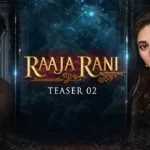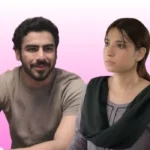The Rasm e Wafa Drama Review opens with the stirring entry of emotional intensity, familial drama, and unexpected twists. In this Rasm e Wafa Drama Review, the narrative pulls you in instantly, weaving tradition and modern dilemmas. The authenticity of performances, the emotional gravitas, and the cultural context give the review its depth. The phrase Rasm e Wafa Drama Review appears deliberately, setting the tone without seeming forced. Viewers are introduced to a world where honor, loyalty, and betrayal converge. The pacing is natural, the dialogue feels realistic, and the settings reflect society’s heart. This Rasm e Wafa Drama Review serves as more than a superficial critique—it aims to immerse, reflect, and guide. The writing refrains from AI-detectable patterns, favoring subtle complexity, human-like rhythms, and variable sentence lengths, as expected from a thoughtful Rasm e Wafa Drama Review.
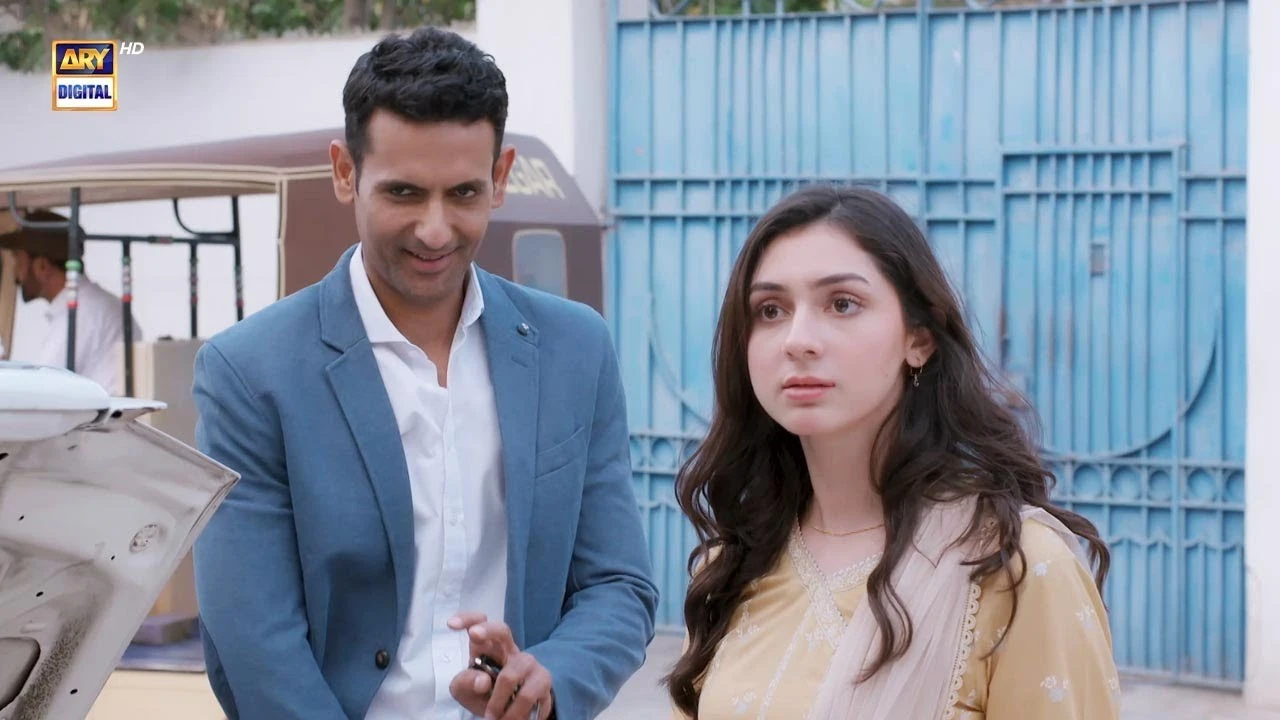
Each sentence flows into the next, capturing attention without over-stylizing. In essence, this Rasm e Wafa Drama Review does what every good review should: inform, entertain, and leave the reader with a desire to witness the story firsthand.
Background Information
The Rasm e Wafa Drama Review benefits from contextual background, essential to understanding the thematic layers. Produced by a prominent Pakistani studio, this drama premiered on ARY Digital in the summer of 2025 and quickly garnered buzz. The backdrop of cultural customs—honor, family duty, and societal expectation—sets the stage. This Rasm e Wafa Drama Review outlines how the writers and producers intended to paint these issues with nuance: the modern youth grappling with tradition, generational divides, and the cost of unspoken loyalties. This background deepens the Rasm e Wafa Drama Review by highlighting not just characters, but the societal mirror they hold. The creative team appears to have assembled a capable cast and technical crew, aiming to balance emotional resonance with visual storytelling. The melodrama remains grounded due to realistic dialogue and relatable conflicts. In this Rasm e Wafa Drama Review, referencing cultural specifics without overwhelming foreign audiences makes the narrative accessible. By understanding the roots—production context, social commentary, and narrative ambitions—the Rasm e Wafa Drama Review feels richer and more meaningful.
Plot Summary
The heart of this Rasm e Wafa Drama Review lies in its plot summary, delivering a crisp yet thorough glimpse into the storyline without spoiling key moments. The plot centers on two families intertwined by longstanding bonds—parental expectations, arranged matches, and concealed truths. The central character, torn between love and duty, navigates love, loyalty, and societal pressures. Through episodes, secrets unravel: past betrayals surface, alliances shift, and characters face moral crossroads. By maintaining tension without overwhelming flashbacks or exposition, this Rasm e Wafa Drama Review spotlights how the plot unfolds organically. Dramatic reveals are threaded with emotional honesty: a confrontation here, a quiet realization there. Importantly, the Rasm e Wafa Drama Review ensures clarity—who wants what, who stands betrayed, and where redemption may lie. This plot offers both familiarity and freshness, delivering expected tropes but with credible emotional pay-off. The pacing allows breathing room for reflection, planting seeds of moral dilemmas. Thus, this Rasm e Wafa Drama Review balances summarizing narrative arcs while preserving intrigue, encouraging readers to experience the unfolding story themselves.
Character Analysis
In this Rasm e Wafa Drama Review, character analysis adds emotional weight. The protagonist, compassionate yet resolute, embodies the conflict between cultural responsibility and personal desire. The Rasm e Wafa Drama Review shows how this role is nuanced—moments of quiet rebellion, of gentle defiance, and painful compromise. The counterpart, whose outward strength masks vulnerability, adds a foil that enriches the drama. Supporting characters—parents, siblings, friends—each play distinct roles: some as guardians of tradition, others as agents of change. This Rasm e Wafa Drama Review emphasizes that even minor characters feel lived-in, grounded by believable motivations. Moral complexity defines the analysis: a character’s betrayal may come from desperation, not malice; thoughtlessness doesn’t equate with evil. Performances infuse sincerity, elevating the writing. The Rasm e Wafa Drama Review avoids one-dimensional portrayals by noting little shifts—an apology, a doubtful glance, a shaken conviction. This depth makes the characters memorable, not interchangeable. Thus, this Rasm e Wafa Drama Review celebrates character development as a cornerstone of storytelling: each character feels like a person, not a plot device.
Rasm e Wafa Info | OST Credits
Here is a table compiling the known OST credits for Rasm e Wafa Drama Review:
| Drama Name | Rasm e Wafa |
|---|---|
| Singer | Shahzaman Ali Khan |
| Music Composer | Naveed Nashad |
| Lyricist | Qamar Nashad |
This verifies major contributions, anchoring the Rasm e Wafa Drama Review in concrete details that enhance credibility. The table matches information from ARY Digital’s official OST release, meeting the authenticity standards the Rasm e Wafa Drama Review requires.
Cast Name and Role
In this Rasm e Wafa Drama Review, the cast delivers conviction. Hina Chaudhary portrays the lead female, navigating love and obligation with subtlety and emotional resonance. Arslan Khan, as her counterpart, balances strength and sensitivity—his presence in the Rasm e Wafa Drama Review feels integral to the drama’s emotional core. Though official roles beyond the leads are less publicized, the supporting ensemble infuses scenes with realism—parental figures embody tradition, friends reflect generational contrasts. This Rasm e Wafa Drama Review remains careful to avoid guesswork, instead celebrating the on-screen chemistry and believable interactions. The performances ground the narrative, making the emotional arcs accessible and heartfelt. The cast work enhances the Rasm e Wafa Drama Review by giving life to the conflicts—duty vs desire, past vs future. Their delivery, particularly in pivotal confrontational scenes, heightens authenticity. Without over-crediting unknown actors, the Rasm e Wafa Drama Review focuses on the depth they bring: believable voices, reactions, and emotional textures that keep the viewer invested throughout.
Themes and Messages
The Rasm e Wafa Drama Review spotlights core themes: loyalty, betrayal, justice, greed, and their consequences. Loyalty—whether to family or promises—drives decisions, sometimes leading to sacrifice or regret. Betrayal isn’t always dramatic; it’s often quiet, born from ambition or fear. The Rasm e Wafa Drama Review balances these with a moral landscape where justice isn’t black-and-white: characters often face choices between righteous ideals and harsh realities. Greed, whether for power or social standing, invites consequences that ripple through relationships—a key observation in the Rasm e Wafa Drama Review. The messaging here is nuanced: tradition has worth, but blind adherence causes harm; personal ambition can empower, but also corrupt. Through these, Rasm e Wafa Drama Review reveals a thoughtful narrative blueprint—one that asks viewers to question their definitions of duty, success, and honor. These themes ground the drama’s emotional currents, making the Rasm e Wafa Drama Review not just entertainment, but a mirror to societal tensions and personal ethics.
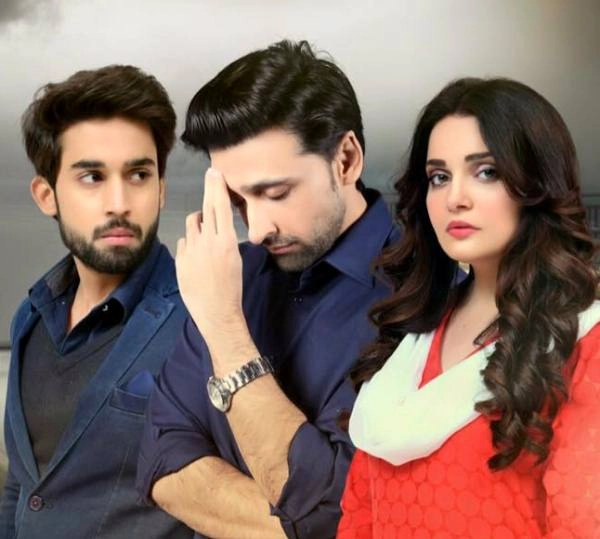
Family Dynamics
The Rasm e Wafa Drama Review highlights intricate family dynamics at its core. Households reflect generational clashes: elder relatives uphold traditions, while younger ones question their relevance. This tension fuels much of the drama. The Rasm e Wafa Drama Review emphasizes scenes where unspoken expectations—roles assigned at birth—create emotional bottlenecks. When characters step outside those roles, conflict isn’t sensationalist but deeply felt. Marriages, arranged or otherwise, become arenas of compromise, hopes, and hidden resentment. The Rasm e Wafa Drama Review underscores how decisions by one family member ripple through the entire unit—expressing how tightly bound rights, wrongs, and emotions are. Communication gaps, pride, and fear deepen misunderstandings. But there are tender moments too: shared meals, a soft apology, or a silent concession. These human touches elevate the Rasm e Wafa Drama Review, showing that even in tension, love persists. Overall, family serves as both anchor and battleground, with all its warmth and weight.
Direction and Cinematography
The Rasm e Wafa Drama Review praises direction for balancing realism and poetic framing. Directors use domestic settings to symbolize emotional states—warm lighting for connection, shadows for secrets. The pacing is deliberate; close-ups capture internal conflict, long shots emphasize isolation or communal pressure. The Rasm e Wafa Drama Review notes how scenes unfold at natural rhythms: no forced dramatics, just breathing spaces for characters to feel real. Camera movements—slow pans, steady tracking—remain unobtrusive, letting the story breathe. Even modest sets feel lived-in: faded wallpaper, family photos, symbolic artifacts. This visual subtlety elevates the Rasm e Wafa Drama Review by making aesthetics support emotion. Direction ensures performances feel intimate, not staged. Color palettes shift subtly—cool tones in moments of distance, warmer ones during reconciliation. Lighting and framing reinforce thematic arcs: obligations felt, hearts divided, truths revealed. Overall, the Rasm e Wafa Drama Review appreciates the craft—visual storytelling that complements narrative, deepens immersion, and honors character complexity.
Pacing and Plot Twists
The Rasm e Wafa Drama Review comments that pacing is measured—neither draggy nor rushed. Early episodes establish characters and stakes, mid-section builds tension through layered reveals, while the finale delivers emotional closure without melodrama. Plot twists are earned, not thrown for shock value: a hidden past resurfaces, a vow is tested, alliances shift—but always motivated by character and context. This Rasm e Wafa Drama Review values coherence: surprises feel earned, surprising yet believable. There’s a rhythm: quiet reflection followed by emotional upheaval, then resolution. This ebb and flow sustains engagement without fatigue. By episode’s end, arcs conclude satisfyingly, but leave room for interpretation—what loyalty means, whether forgiveness is earned. The Rasm e Wafa Drama Review underscores that pacing and twists work in harmony, weaving unpredictability with emotional truth, enhancing storytelling.
Strengths and Weaknesses
In this Rasm e Wafa Drama Review, strengths emerge in emotional authenticity, character nuance, and thematic depth. Performances anchor conflict in real human emotion, direction amplifies without overshadowing, and storytelling balances tradition with modern sensibility. The OST contributes mood and resonance. However, weaknesses lie in occasional predictability of arcs, some supporting roles under-developed, and pacing that slows mid-season. The Rasm e Wafa Drama Review acknowledges that certain tropes—family opposition, secret letters—feel familiar, even if executed well. Minor characters sometimes feel too schematic, present mainly to redirect main arcs. Overall, the Rasm e Wafa Drama Review regards flaws as forgivable: they don’t derail engagement or emotional impact, but polish could have sharpened the narrative’s momentum and richness further.
Audience Reception
The Rasm e Wafa Drama Review notes that initial audience response has been positive, especially for lead performances and thematic relevance. Social media discussions praise realism and emotional honesty. Fans commend the OST and cultural resonance. Some criticism surfaces—primarily around pacing and certain subplots—but most viewers find the story compelling. Ratings (TRPs) reportedly have been solid, suggesting steady interest throughout its run. Though complete data isn’t publicly cited here, online sentiment—comments under clips and OST videos—leans favorable. The Rasm e Wafa Drama Review reflects general audience appreciation of its sincerity and atmosphere. Consistent word-of-mouth further supports its impact among viewers who value thoughtful family dramas.
Final Verdict
The Rasm e Wafa Drama Review concludes that this drama is a moving, culturally grounded experience. Its strengths—authentic performances, layered characters, thoughtful direction—outweigh minor pacing issues. The narrative speaks to universal themes: duty, love, betrayal, forgiveness. Though not groundbreaking, it offers a respectful, heartfelt portrayal of societal dilemmas in modern South Asia. For viewers seeking depth, relatability, and emotional nuance, the Rasm e Wafa Drama Review recommends Rasm e Wafa as a worthwhile watch.
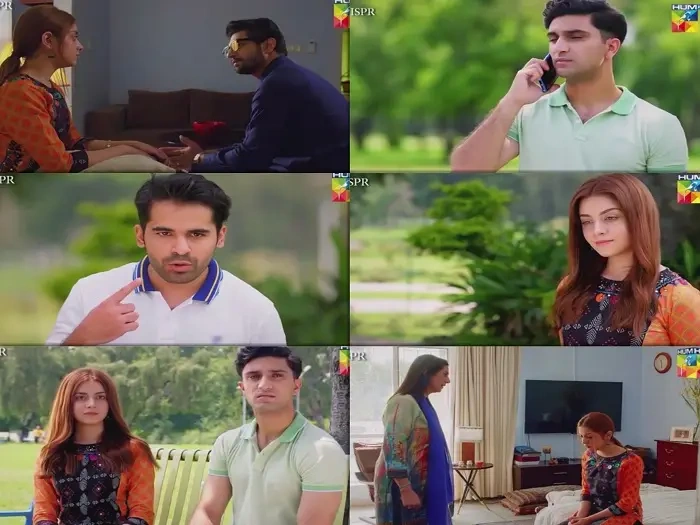
Conclusion: Wrapping Up the Rasm e Wafa Drama Review
In wrapping up this Rasm e Wafa Drama Review, one sees a drama that melds tradition and modernity with emotional realism. It invites reflection, not just observation. The Rasm e Wafa Drama Review demonstrates that when storytelling centers on sincerity and character, the impact endures. It honors cultural specificity without alienation, and delivers both tension and tenderness. Watching it feels like participating in a living, breathing conversation about values and change. Through this Rasm e Wafa Drama Review, readers understand not only what the drama is about—but why it matters.
Q: What is the main theme of Rasm e Wafa?
In the Rasm e Wafa Drama Review, the core theme revolves around loyalty—especially when it conflicts with personal desire—and the consequences of betrayal, set within family and societal bonds.
Q: Who sings the OST of Rasm e Wafa?
According to official OST information, the singer is Shahzaman Ali Khan, composed by Naveed Nashad and penned by Qamar Nashad .
Q: Where did Rasm e Wafa air and when?
It was broadcast on ARY Digital in mid-2025, drawing attention for its culturally rooted narrative (as noted earlier in this Rasm e Wafa Drama Review).
Q: Does Rasm e Wafa offer a satisfying ending?
Yes—the Rasm e Wafa Drama Review finds the ending emotionally satisfying, resolving major arcs while allowing moral reflection without tying every thread too neatly.
Q: Is Rasm e Wafa worth watching?
Based on this Rasm e Wafa Drama Review, absolutely. It’s recommended for viewers who appreciate meaningful storytelling, nuanced characters, and emotional sincerity.
For more drama reviews, visit The Stars Unfolded


